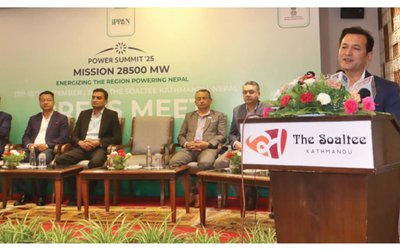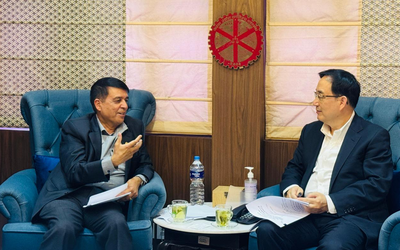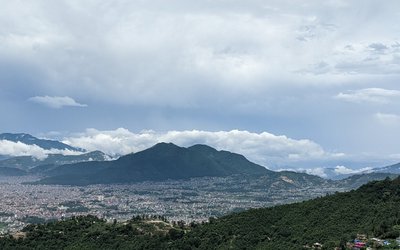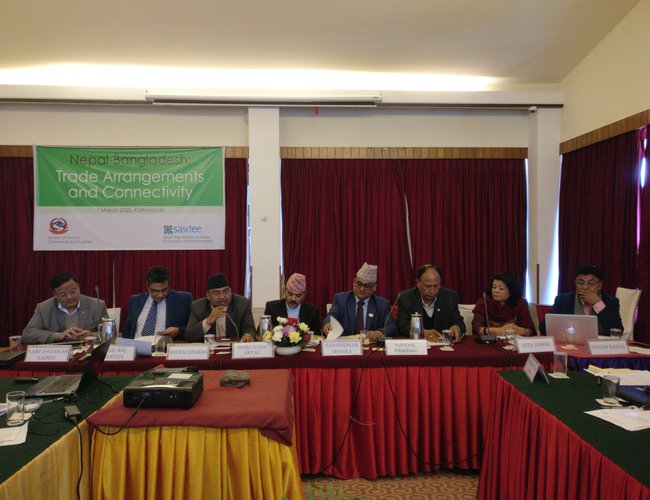
As the Government of Nepal negotiates a preferential trade agreement (PTA) with Bangladesh, persuading Bangladesh to remove an array of duties and charges that it levies over and above basic customs duties on products of export interest to Nepal should top the negotiating agenda, experts and traders emphasized, in a program organized on Sunday on Nepal-Bangladesh trade and connectivity.
While basic tariffs in Bangladesh average some 25 percent on agricultural and food products of interest to Nepal, para-tariffs raise the total border tax rate to more than 90 percent on key products.
Given the consistently high economic growth rate recorded by Bangladesh, the huge size of its economy, its geographical proximity to Nepal, and its substantial amounts of imports of agricultural and food products of export interest to Nepal, Nepal cannot ignore the Bangladeshi market and therefore must enter into a preferential trade agreement (PTA) with it to boost Nepal’s exports to this market, said Dr. Posh Raj Pandey, Chairman, South Asia Watch on Trade, Economics and Environment (SAWTEE), in a program jointly organized by the Ministry of Industry, Commerce and Supplies (MoICS) and SAWTEE on the eve of the departure of a team of negotiators from Nepal for Bangladesh.
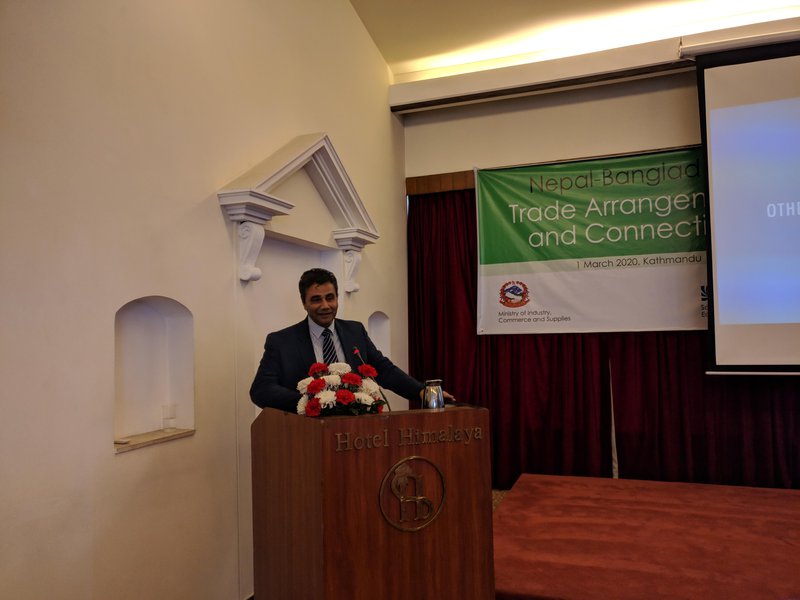
A PTA is particularly necessary to remove an array of a high tariff and para-tariff barriers in Bangladesh on goods of export interest to Nepal, he said. Noting that beginning in 2013, Nepal’s trade balance with Bangladesh shifted into negative territory from a surplus, he suggested that Nepal seeks concessions on tariffs and other duties and charges on at least 76 agricultural and food products identified by a SAWTEE study as having high export potential, with a focus on 18 products for which Bhutan already gets tariff- and para-tariff-free access to Bangladesh under a bilateral agreement between the two countries. The study also recommends including a provision for a mutual recognition arrangement in the PTA to guard against the possibility that standards-related and technical regulations in one county might hurt exports of another as bilateral trade grows.
Kishore Pradhan, Vice-President, Federation of Nepalese Chambers of Commerce and Industry (FNCCI), said that Nepal’s priority should be to get concessions on products where Bhutan has already secured concessions from Bangladesh. Delays in releasing letter-of-credit payments from the Bangladeshi side should also be addressed, he added.
Rita Simha, President, Federation of Women Entrepreneurs’ Association of Nepal (FWEAN), noted that there is high demand in Bangladesh for amresho, ginger, cardamom and tea, and urged the government to facilitate standards-related certification of these products to enable their access to the Bangladeshi market.
Navraj Dhakal, Joint Secretary, MoICS, said the government has its sights set on securing concessions on around 20 products, adding that the goal is to have a “package deal” that addresses not just tariff barriers but also para-tariff barriers, besides issues concerning standards, customs valuation and business visa, among others.
Purushottam Ojha, former Secretary, MoICS, suggested that connectivity issues be included in the agreement, and recommended that the government go for an early harvest that will yield tariff and para-tariff concessions on priority products.
Baikuntha Aryal, Secretary, MoICS, said the ministry is cognizant of the need for setting a firm timeline for the implementation of points agreed during different phases of negotiations. Focusing on select priority products, the government will press for timebound implementation, he said.
Traders exporting to Bangladesh called for a provision for visa-on-arrival for Nepalis entering Bangladesh via the land route. They also urged the Nepal government to ensure better transit-transport connectivity between Bangladesh and Nepal, pointing out that the Fulbari-Bangalabandh route, originally meant for Nepal-Bangladesh trade, has become congested as it now has to also serve Bhutan-Bangladesh trade and India-Bangladesh trade, with Bhutanese cargo getting priority in clearance.
- Nepal Is Expected To See 60,000 People Infected with Dengue This Year
- Jul 04, 2025
- Journalist Pathak ordered to be released on bail of Rs 25,000
- Jul 04, 2025
- IPPAN To Hold Ninth Power Summit in September: IPPAN President Karki
- Jul 04, 2025
- Weather Forecast: Generally Cloudy Across The Country With Heavy Rain At One Or Two Places In Koshi, Bagmati And Lumbini Provinces
- Jul 04, 2025
- Global IME Capital’s “Samunnat Yojana 2” Mutual Fund Opens for Public Offering from July 6
- Jul 03, 2025
